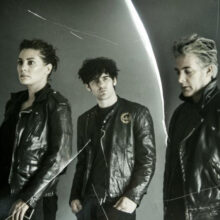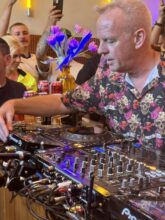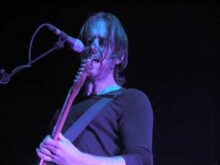After 36 years together, New Zealand’s Shihad have announced they will be no more after one final tour.
The final Shihad show will take place on 14 March in Auckland, New Zealand.
SHIHAD
The Final Tour
Loud Forever 1988 – 2025
With Special Guests Battlesnake & BodyJar (Melb Only)
Saturday 4 January Robrosa Station, Wanaka NZ
Friday 31 January Black Barn, Hawkes Bay, NZ
Friday 7 February Trafalgar Centre, Nelson, NZ
Saturday 8 February Kickdown Festival, Whangamata, NZ
Thursday 13 Feb The Gov Adelaide SA
With Special guests, Battlesnake
Friday 14 Feb The Metro Theatre Sydney NSW
With Special guests, Battlesnake
Friday 21 Feb Astor Theatre Perth WA
With Special guests, Battlesnake
Friday 28 Feb The Tivoli Brisbane QLD
With Special guests, Battlesnake
Saturday 1 March Sector 7, Christchurch NZ
Friday 7 Mar Forum Melbourne VIC
With Special guests, Bodyjar and Battlesnake
Friday 14 March, Auckland, Spark Arena
The History of Shihad
Shihad, one of New Zealand’s most enduring rock bands, was formed in 1988 in Wellington. The original lineup featured Jon Toogood (vocals, guitar), Tom Larkin (drums), Phil Knight (guitar), and Geoff Duncan (bass). Duncan was later replaced by Karl Kippenberger in 1991. The band’s name was inspired by the Dune series of novels by Frank Herbert, particularly the “Jihad” concept, which they later adjusted to “Shihad.”
In their early years, Shihad gained popularity with their powerful live performances and distinctive sound, which combined elements of hard rock, metal, and grunge. Their first EP, Devolve, released in 1991, was well-received and showcased their raw energy and potential.
Shihad’s debut full-length album, Churn, produced by Killing Joke’s Jaz Coleman, was released in 1993 and solidified their place in the New Zealand rock scene. The album’s success led to a record deal with Mushroom Records, and their follow-up album, Killjoy (1995), brought them international recognition, particularly in Australia.
The band’s third album, Shihad (1996), also known as the Fish Album, continued their success with hits like “Home Again” and “Pacifier.” This period marked Shihad’s transition from local heroes to international contenders, with extensive tours across Australia, Europe, and the United States.
In the wake of the September 11 attacks, Shihad faced controversy due to the perceived similarity of their name to the term “jihad.” In response, the band decided to change their name to “Pacifier,” under which they released the album Pacifier in 2002. Despite the album’s success, the name change was met with mixed reactions from fans and critics alike.
In 2004, Shihad reverted to their original name, acknowledging the strong identity and legacy associated with it. They released the album Love Is the New Hate in 2005, which marked a return to their heavier roots and was well-received by both fans and critics.
The following years saw the release of several more albums, including Beautiful Machine (2008), Ignite (2010), and FVEY (2014), each showcasing their evolving sound and enduring appeal.
Throughout this period, Shihad remained a powerful live act, known for their energetic and passionate performances. They continued to tour extensively, solidifying their status as one of New Zealand’s greatest rock exports.
In 2018, Shihad celebrated their 30th anniversary with a special tour and the release of a new album, The General Electric (Revolution). The band continued to perform and record, maintaining their relevance in the ever-changing music industry.
However, in 2024, Shihad announced that they would be disbanding after one final tour, marking the end of an era. The farewell tour, titled “Loud Forever 1988 – 2025,” will culminate with a final show in Auckland on 14 March 2025.
Stay updated with your free Noise11.com daily music news email alert. Subscribe to Noise11 Music News here
Be the first to see NOISE11.com’s newest interviews and special features on YOUTUBE and updated regularly. See things first SUBSCRIBE here: Noise11 on YouTube SUBSCRIBE



















